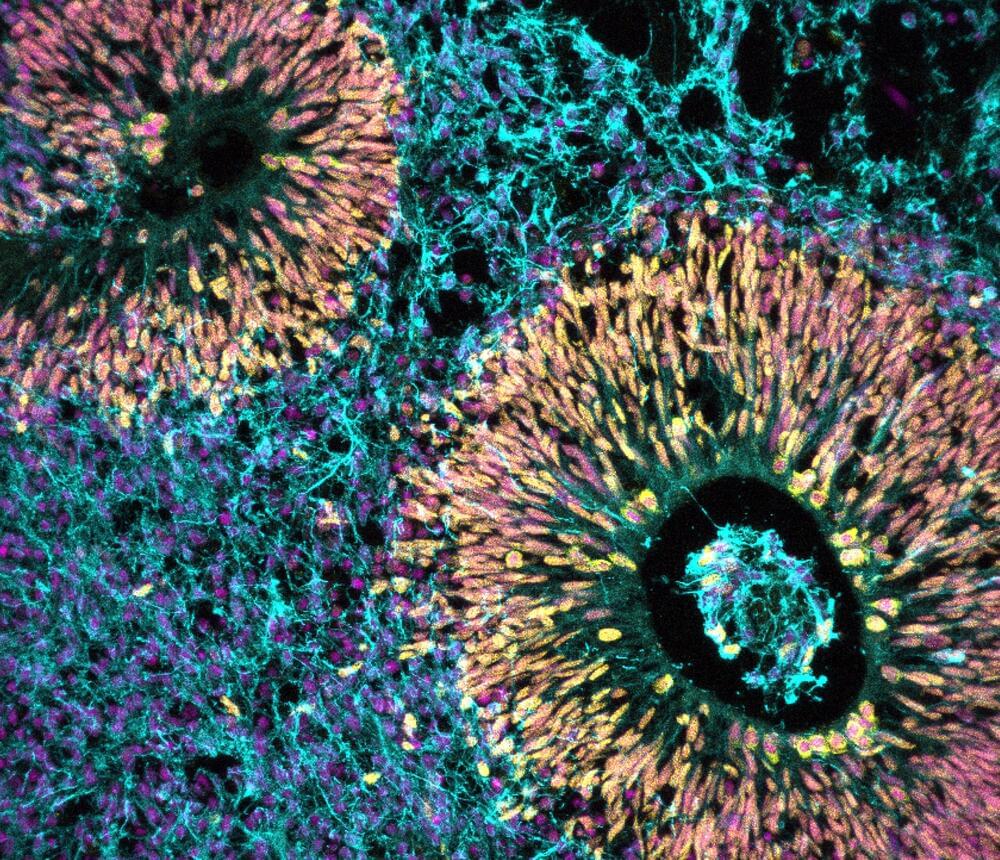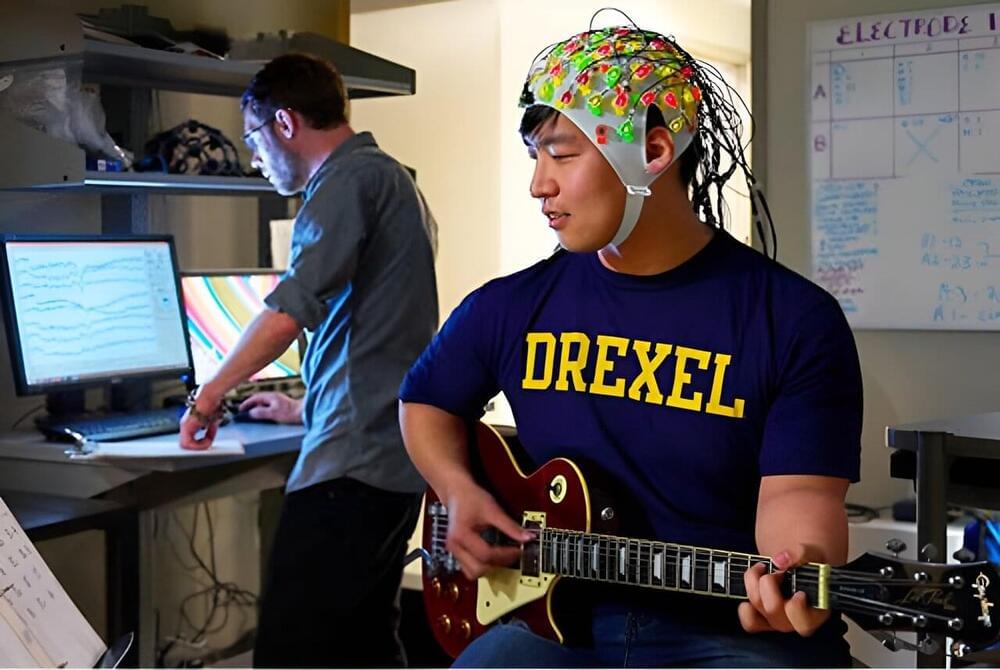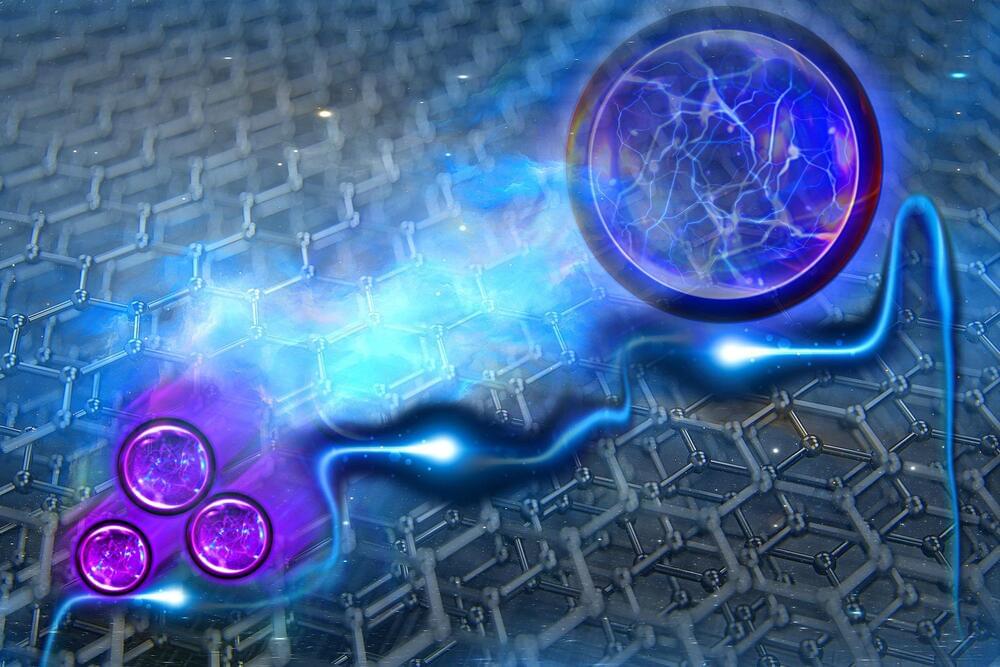He worked as a busboy at Denny’s, graduated high school at 16, and got the Nvidia logo tattooed on his bicep when the stock price hit $100.



Researchers at the Max Planck Institute of Psychiatry have investigated how stress hormones affect the early development of brain cells in the cerebral cortex of the fetus. The cortex is the crucial area of the brain for thinking. The team was able to demonstrate causal links between stress hormones and altered brain structure, which relate to higher levels of educational attainment later in life.
The hormone group of glucocorticoids is crucial for the regulation of our metabolism and immune response, but also for the development of organs such as the brain and lungs before birth. The hormones are released in response to stress and can travel from the mother to the fetus. One of the best-known stress hormones is cortisol. Synthetic forms are prescribed, for example, in pregnancies at high risk for preterm delivery in order to help the maturation of the fetal lungs.
“We found that glucocorticoids, when present early in gestation in the first or early second trimester, increase the number of a particular type of brain cells that are formed very early in development (called basal progenitor cells)”, reports Anthi C. Krontira, who led the study published in Neuron. “These are cells that are important for the growth of the cerebral cortex.”

GreenPower has delivered an electric purpose-built Type D BEAST school bus to Arizona, its first in the state.
GreenPower’s BEAST – “battery electric automotive school transportation” – is a 40-foot electric school bus that seats up to 90 passengers. It features an aluminum body on a high-strength steel truss chassis.
The BEAST has a 194 kWh lithium iron phosphate battery pack and a range of up to 150 miles, and standard dual port charging, with Level 2 charging rates of up to 19.2 kW and DC fast charging rates of up to 85 kW. Wireless charging is also available as an option.

The University of Chicago Medicine is among the first 30 institutions in the country to offer tumor-infiltrating lymphocyte (TIL) therapy for advanced melanoma, immediately activating as an authorized treatment center after federal regulators approved the treatment on February 16, 2024.
Effortless, enjoyable productivity is a state of consciousness prized and sought after by people in business, the arts, research, education and anyone else who wants to produce a stream of creative ideas and products. That’s the flow, or the sense of being “in the zone.” A new neuroimaging study from Drexel University’s Creativity Research Lab is the first to reveal how the brain gets to the creative flow state.
The study is published in the journal Neuropsychologia.
The study isolated flow-related brain activity during a creative task: jazz improvisation. The findings reveal that the creative flow state involves two key factors: extensive experience, which leads to a network of brain areas specialized for generating the desired type of ideas, plus the release of control— letting go—to allow this network to work with little or no conscious supervision.



An exotic electronic state observed by MIT physicists could enable more robust forms of quantum computing.
The electron is the basic unit of electricity, as it carries a single negative charge. This is what we’re taught in high school physics, and it is overwhelmingly the case in most materials in nature.
But in very special states of matter, electrons can splinter into fractions of their whole. This phenomenon, known as “fractional charge,” is exceedingly rare, and if it can be corralled and controlled, the exotic electronic state could help to build resilient, fault-tolerant quantum computers.

Like Gates, Leslie doesn’t dismiss doomer scenarios outright. “Bad actors can take advantage of these technologies and cause catastrophic harms,” he says. “You don’t need to buy into superintelligence, apocalyptic robots, or AGI speculation to understand that.”
“But I agree that our immediate concerns should be in addressing the existing risks that derive from the rapid commercialization of generative AI,” says Leslie. “It serves a positive purpose to sort of zoom our lens in and say, ‘Okay, well, what are the immediate concerns?’”
In his post, Gates notes that AI is already a threat in many fundamental areas of society, from elections to education to employment. Of course, such concerns aren’t news. What Gates wants to tell us is that although these threats are serious, we’ve got this: “The best reason to believe that we can manage the risks is that we have done it before.”

New theoretical work establishes an analogy between systems that are dynamically frustrated, such as glasses, and thermodynamic systems whose members have conflicting goals, such as predator–prey ecosystems.
A system is geometrically frustrated when its members cannot find a configuration that simultaneously minimizes all their interaction energies, as is the case for a two-dimensional antiferromagnet on a triangular lattice. A nonreciprocal system is one whose members have conflicting, asymmetric goals, as exemplified by an ecosystem of predators and prey. New work by Ryo Hanai of Kyoto University, Japan, has identified a powerful mathematical analogy between those two types of dynamical systems [1]. Nonreciprocity alters collective behavior, yet its technological potential is largely untapped. The new link to geometrical frustration will open new prospects for applications.
To appreciate Hanai’s feat, consider how different geometric frustration and nonreciprocity appear at first. Frustration defies the approach that physics students are taught in their introductory classes, based on looking at the world through Hamiltonian dynamics. In this approach, energy is to be minimized and states of matter characterized by their degree of order. Some of the most notable accomplishments in statistical physics have entailed describing changes between states—that is, phase transitions. Glasses challenge that framework. These are systems whose interactions are so spatially frustrated that they cannot find an equilibrium spatial order. But they can find an order that’s “frozen” in time. Even at a nonzero temperature, everything is stuck—and not just in one state. Many different configurations coexist whose energies are nearly the same.
